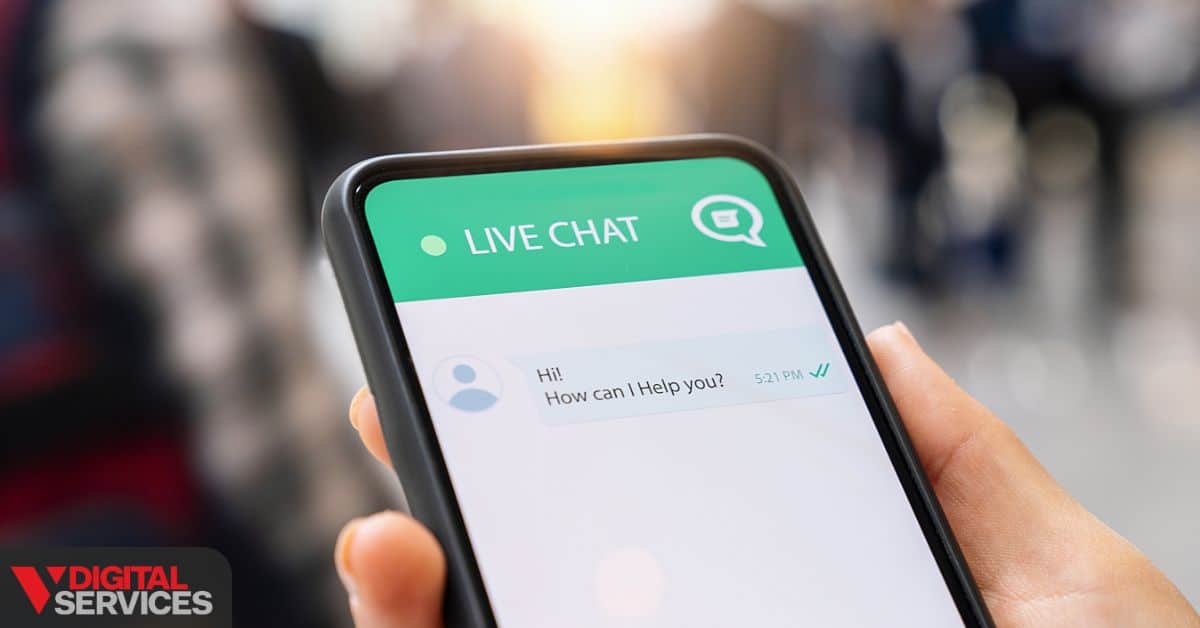Artificial Intelligence (AI) is becoming a big part of digital marketing jobs. With AI tools, businesses can automate tasks, personalize customer experiences, and make better decisions. But as AI keeps improving, many people are asking: Is AI replacing digital marketing? Or is it just another tool to help marketers do their jobs better? As a digital marketing agency, we know that AI can change the way businesses approach marketing. But does that mean AI will completely take over?
AI will not replace digital marketing, at least not the human side of it. What AI will do is dramatically reshape how digital marketing gets done. It’s already automating repetitive tasks, crunching complex data, and even generating basic content. However, there are key areas where AI still falls short: emotional intelligence, brand storytelling, strategic decision-making, and building real human connections. These are the core elements of digital marketing that only experienced professionals can deliver, and they aren’t going anywhere.
At V Digital Services, we’ve seen firsthand how AI tools can elevate what digital marketers do. Our team blends real human strategy with innovative technology to help businesses grow smarter, not just faster. If you’re looking to future-proof your digital marketing strategy and partner with experts who know how to use AI well, our digital marketing services are built for that. So, contact us today and let’s talk about a smarter strategy to make your marketing efforts more effective.
This post will cover what AI can and can’t do when it comes to digital marketing. We’ll also cover where AI shines, where it still struggles, and how you can use it to your advantage without losing the human edge your brand needs.
Will Digital Marketing Be Replaced by AI?

The short answer is no. While AI is an important tool, it’s not going to take over everything. Instead, AI will work alongside human marketers to make digital marketing even better.
AI excels at handling tasks like analyzing data, automating content, and personalizing customer experiences, but humans still need to provide creativity, strategy, and insights. The best results come when AI and human marketers work together. This will be the case more and more as things with AI develop further, including through AI search engines.
How to Use AI in Digital Marketing Without Losing the Human Touch
To have AI assist you with digital marketing without stripping the process completely of the human touch, it is recommended to:
- Let AI Handle Repetitive Tasks: Use AI to take care of things like scheduling posts or analyzing customer data, so your marketing team can focus on creating and optimizing campaigns and coming up with new ideas.
- Make Smart Decisions Using Data: AI can help you understand customer behavior and predict trends, but don’t forget to use your human judgment to make the final call.
- Keep the Human Connection: Even though AI can help with personalization, customers still want to feel like they’re talking to real people. Keep your marketing messages authentic and focused on building relationships.
- Use AI Responsibly: Be transparent with your customers about how you use their data. Ensure that your AI tools are working ethically and in a way that builds trust with your audience.
How AI Is Changing Digital Marketing

AI has brought some big changes to the digital marketing world. Here are some ways it’s making a difference:
- Automation: AI helps businesses automate repetitive tasks, like posting on social media or sending emails. This saves time and lets marketers focus on other important things.
- Personalization: AI uses data to create more personalized marketing messages for customers. This means customers get content that’s more relevant to them, which can lead to better results.
- Predicting Trends: AI can look at customer behavior and predict what they might do next. This helps businesses make smarter decisions and improve their marketing.
- Chatbots: AI-powered chatbots help answer customer questions instantly, 24/7. This means customers get quick responses, improving their experience with your brand.
The Benefits of AI in Digital Marketing
AI, when used wisely, is a game-changer. It boosts productivity by automating time-consuming tasks like email segmentation, content scheduling, and bid management. It delivers faster, smarter insights that empower you to make decisions based on data, not gut feeling. And it improves personalization at scale, helping you serve the right message to the right person at the right time.
Perhaps best of all, AI allows marketers to focus more on what they do best: creative thinking and strategy. By taking the heavy lifting off your plate, AI frees up time for big ideas and brand-building work, the kind that drives lasting results.
Additionally, AI tools never sleep. They can keep working around the clock, handling customer service or managing ads without taking breaks. This helps businesses grow and scale faster.
What AI Can and Cannot Do in Digital Marketing?

AI is changing the digital marketing landscape fast, but it’s not taking over completely. While it can supercharge productivity and provide powerful insights, it still has some very real limits. To make the most of AI without losing your brand’s human edge, it’s important to understand what these tools do well and where they still need a helping hand. Let’s break it down:
What AI Can Do in Digital Marketing
Let’s start with the exciting part: AI really is helping marketers get more done in less time. And when used well, it can be a major competitive advantage. For one, AI is amazing at automating repetitive tasks. Think scheduling social media posts, segmenting email lists, or optimizing PPC bids in real-time. These are tasks that used to eat up hours, but now, they’re handled in minutes, with minimal oversight.
AI also shines when it comes to data analysis, especially massive data sets. If you’ve ever stared at a spreadsheet of ad performance or SEO metrics, wondering what’s meaningful, AI can sift through all that noise and give you patterns, predictions, and even suggestions. It’s like having a tireless data analyst on your team 24/7.
And yes, AI can help generate content drafts. It can churn out product descriptions, blog outlines, or email intros at lightning speed. It’s not perfect, but it gives you a solid foundation to start from, which is a huge time-saver when deadlines are looming. So if you’re using AI to amplify your marketing efforts, you’re on the right track. It’s not about replacing people; it’s about freeing them up to focus on what really matters.
What AI Can’t Do (Yet) in Digital Marketing
Now for the reality check. AI has limits. And when you hit those limits, it becomes very clear why human marketers aren’t going anywhere anytime soon. First, AI still struggles to understand brand nuance and tone. Sure, it can mimic a writing style, but it doesn’t get your brand voice on an emotional or cultural level. That kind of subtlety, knowing when to be bold versus empathetic, playful versus professional, comes from deep experience, and not code.
Emotional intelligence is another big gap. Marketing isn’t just about data and efficiency; it’s about resonating with people. AI can’t read a room, gauge how a campaign might land with a skeptical audience, or adapt in real time during a crisis. Humans can, and that difference matters.
Strategic thinking is also still a human domain. AI can give you options, but it can’t make high-level decisions about positioning, brand architecture, or how to balance short-term gains with long-term growth. It’s missing the context, the intuition, and the lived experience that great marketers bring to the table every day.
Finally, and maybe most importantly, AI can’t build trust and relationships the way people do. No algorithm can replace the feeling of sitting across from a client, listening deeply, and crafting a solution together. That human connection is where loyalty and long-term partnerships are built.
Marketing Roles Most at Risk from AI

Let’s be honest, not every marketing role is AI-proof. Positions that rely heavily on repetition, data entry, or simple content production are the most vulnerable. For example, junior copywriters generating basic product descriptions or analysts spending their days in spreadsheets may see parts of their work automated.
But here’s the good news: roles that involve strategic thinking, human creativity, emotional intelligence, and direct client interaction are far less at risk. If your role involves building relationships, crafting unique brand voices, or thinking big-picture, AI is more likely to assist you, not replace you. The marketers who thrive will be the ones who learn how to partner with AI, not compete with it.
Need More Help on How to Integrate AI in Your Marketing?
AI is definitely changing the world of digital marketing, but it’s not going to replace marketers. Instead, AI will help marketers do their jobs faster and more effectively, while humans will still be needed to provide creativity, strategy, and emotional connection.
At V Digital Services, we specialize in using AI to improve your marketing efforts, but we also understand that human insight is crucial to creating successful campaigns. Contact us today to learn how we can use AI and human expertise to take your marketing to the next level.
FAQs: AI and the Future of Digital Marketing
AI is everywhere in marketing conversations these days—and for good reason. It’s powerful, fast, and evolving quickly. But it also raises a lot of questions, especially for professionals navigating how (and where) to use it without losing the human side of what makes marketing work. Below, we answer some of the most common concerns we hear from marketers, brand leaders, and curious business owners alike.
Can AI Replace Digital Marketers?
Not completely, and probably never. AI can automate tasks, speed up data analysis, and even draft basic content. But it lacks the strategic judgment, emotional intelligence, and creativity that human marketers bring to the table. The best results happen when humans and AI work together, not when one tries to replace the other. Ultimately, it will be difficult for AI to replace human marketers completely.
Is AI Sufficient for Persuading Customers or Leads in Marketing?
Not really. AI can help personalize messaging and optimize timing, but persuasion requires trust, nuance, and emotional resonance – areas where AI still struggles. Effective marketing taps into human psychology, empathy, and real-world context, which are difficult for machines to fully understand or replicate.
What Advice Is There for Marketers Who Feel Apprehensive About Using AI?
Start small and stay curious. You don’t need to be an AI expert to embrace AI. Try using it for simple tasks, like generating headlines or summarizing reports, and build from there. The more familiar you get with AI tools, the more confident you’ll feel in making them part of your daily workflow.
How Prevalent Is the Use of Generative AI Tools Among Marketers?
Very prevalent, and growing fast. According to recent industry reports, a large percentage of marketing teams now use tools like ChatGPT, Jasper, and Canva’s Magic Write in their content creation and brainstorming workflows. It’s no longer a novelty, it’s becoming standard practice for marketers looking to save time and boost output.
Can AI Write Content With Genuine Human Emotion and Empathy?
Not quite. While AI can mimic tone and phrasing well, it doesn’t feel anything. That means AI-generated content often lacks the depth and nuance of lived experience. It can get you a solid draft, but true emotional resonance, especially in storytelling or persuasive messaging, still needs a human touch.
What Mindset Should Marketers Have When Adopting AI?
Stay open, adaptable, and human-first. AI isn’t about doing less; it’s about doing smarter. The marketers who thrive in this new landscape will be the ones who see AI as a partner, not a threat, and who remain focused on delivering authentic, people-centered experiences.
How Should Marketers Approach Integrating AI Into Their Workflow?
Think of AI as an assistant, not a replacement. Use it to handle repetitive or time-consuming tasks so you can focus on higher-value work like strategy, storytelling, and creative direction. Test new tools gradually, track what improves efficiency, and make sure you’re still in the driver’s seat creatively.
Why Is Building Lasting Customer Relationships Difficult for AI in Marketing?
Because relationships are built on trust, empathy, and personal interaction, all things AI struggles with. Customers want to feel heard, seen, and understood. While AI can help personalize and streamline communication, it can’t genuinely care, and people can feel the difference.
Why Can’t AI Replicate Successful Marketing?
Because great marketing is more than data and automation—it’s about connection. AI can optimize based on patterns, but it can’t think creatively, adapt to subtle context shifts, or understand cultural nuance like a human can. The best marketing resonates because it feels real, and AI just isn’t there yet.
What Are Examples of AI Technologies and Terms Relevant to Marketing?
You’ll hear terms like natural language processing (NLP), machine learning (ML), and predictive analytics thrown around often. Tools like ChatGPT, Google Performance Max, HubSpot’s AI features, and GrammarlyGO are already transforming how marketers create, analyze, and optimize content.



